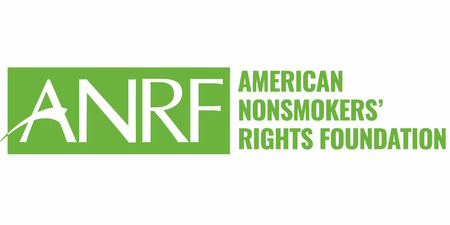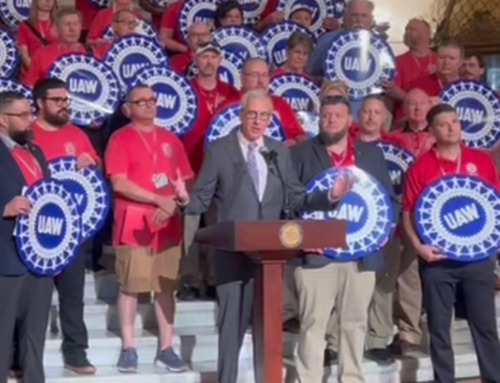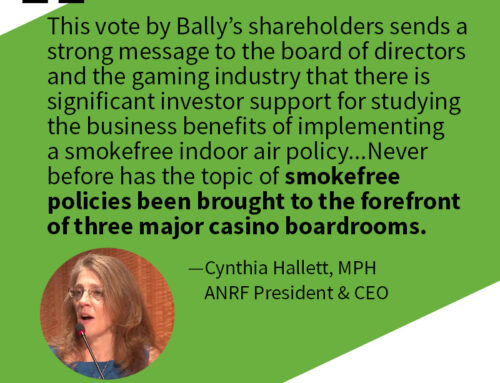May 13, 2024
Press Release from Yurok Tribe
[Yurok Reservation] – In a historic move to safeguard public health and preserve the well-being of its most vulnerable members, the Yurok Tribe recently enacted a groundbreaking commercial tobacco law, the Yurok Tobacco Responsibility Ordinance. The far-reaching initiative offers comprehensive protections for people in indoor and outdoor spaces, introduces innovative regulations on litter, and imposes strict commercial tobacco use limitations near areas frequented by school children.
“This ordinance seeks to eliminate exposure to dangerous secondhand cigarette smoke in all tribal spaces,” said Joseph L. James, the Chairman of the Yurok Tribe. “It also sends a strong message to our youth about the life-threatening risks associated with the abuse of commercial tobacco products.”
The Yurok Tobacco Responsibility Ordinance is unique compared to most other Tribal commercial tobacco policies because it includes:
- All commercial tobacco products – cigarettes, vapes, chew, and emerging tobacco products – are prohibited while exempting Yurok traditional tobacco use.
- Comprehensive protection in both indoor and outdoor spaces.
- Rigorous regulations on litter aimed at reducing tobacco-related waste.
- Strict smoking limitations near areas frequented by school-age children.
The United Indian Health Services (UIHS) received funding from the California Department of Public Health to collaborate with the Yurok Tribe on the development of the Tobacco Responsibility Ordinance. Since 2019, the (CDPH) has provided competitive grant funding through the California Tobacco Prevention Program directly to Tribes for commercial tobacco prevention.
“CDPH is proud to partner with Tribes to address the devastating toll the tobacco industry has taken on California’s Native American population. The Yurok Tribe has emerged as a trailblazer in groundbreaking, comprehensive commercial tobacco-free policy that will protect its tribal members and community, “expressed CDPH Director and State Public Health Officer, Dr. Tomás Aragón.
The Yurok Tribal Council and tribal departments, along with community members and local health agencies provided input on the new ordinance. At its core, the Yurok Tobacco Responsibility Ordinance exemplifies the exercise of Tribal sovereignty to address pressing public health challenges posed by commercial tobacco uses, which remains the number one cause of preventable death.
“I applaud the Yurok Tribe for their adoption of commercial tobacco-free policies to protect Yurok citizens and generations to come. The Yurok Tribe has taken the dangers of commercial tobacco, vaping, and secondhand smoke exposure seriously and has chosen to protect their citizens. In addition, their policies also protect our land from all tobacco litter. Thank you for supporting a healthier environment for our community and taking a stand against commercial tobacco,” said Liz O’Rourke, the CEO of the United Indian Health Services Tribal Health Program.
The Health and Social Policy Institute (HASPI) also contributed to the Yurok Tobacco Responsibility Ordinance. For the past several years, HASPI has supported Lake and Humboldt County tribes, including the Yurok Tribe, in tobacco policy research and development.
Dr. Dian Kiser, CEO of the Health and Social Policy Institute (HASPI), said, “We see this as a truly positive move and believe this continues to make the Yurok Tribe a public health leader in California. We applaud and honor their actions.”
The policy’s emphasis on litter control is another illustration of the Tribe’s commitment to environmental stewardship and sustainability. By implementing regulations to reduce tobacco-related litter, the Yurok Tribe seeks to eradicate a major source of ocean pollution.
Furthermore, the establishment of smoke-free zones near areas frequented by youth amplifies the Tribe’s dedication to protecting the most vulnerable members of its community from the harmful effects of secondhand smoke and normalization of smoking.
As the Yurok Tribe champions public health initiatives, it sends a powerful message to Tribal nations across the country about the importance of exercising sovereign authority to address pressing health challenges. Through collaborative efforts, Tribal communities have the opportunity to shape a healthier, more vibrant future for all.






